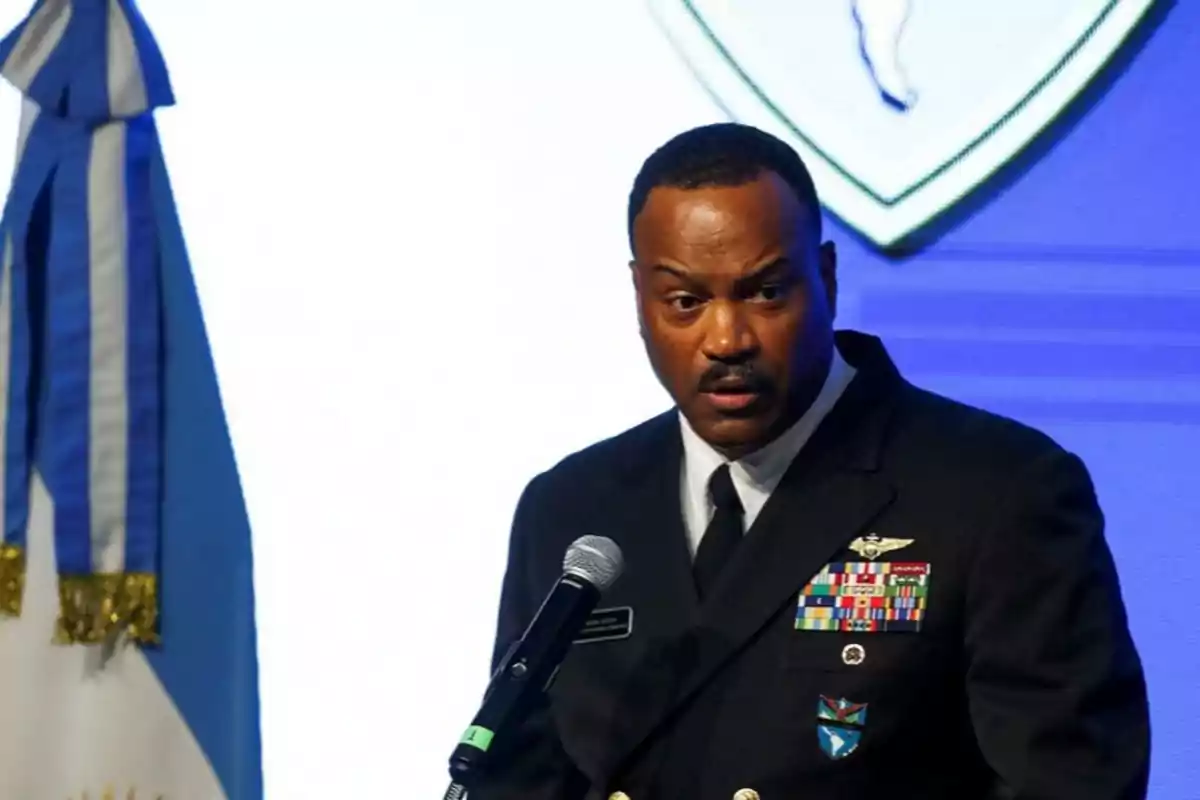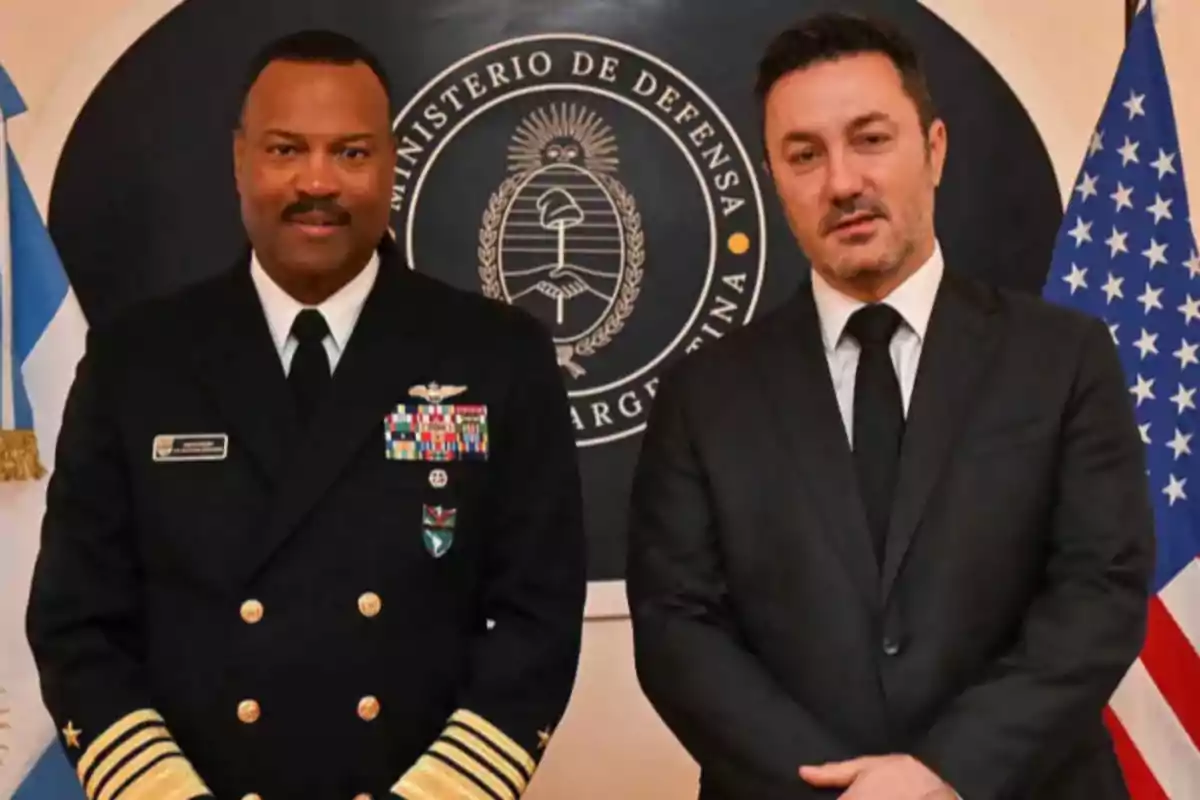
The head of the United States Southern Command warned about the danger of the Chinese Communist Party.
Alvin Holsey warned about the dangers of the Chinese regime's expansion in the region
Defense Minister Luis Petri, together with the head of United States Southern Command, Alvin Holsey, launched Southdec 2025 this Wednesday, a regional summit that brings together defense specialists, top military authorities from various countries across the Americas, and representatives of European organizations.
The event, held for the second time in the Argentine capital, seeks to strengthen international cooperation on security, organized crime, and strategic defense.
At the opening, Argentine authorities warned about the actions of criminal organizations in border areas, while U.S. representatives issued strong criticism of the influence of the Chinese regime in the region, which they described as "a threat to the people," since the communist dictatorship "seeks to export its authoritarian model."
After the national anthems of both nations were played, Petri stated that "this conference wouldn't have been possible without the joint organization and collaboration between Argentina and the United States." The minister emphasized that the meeting is highly relevant for the country, as it confirms the decision and mandate of President Javier Milei to align with Donald Trump's administration.

During his address, the Defense Minister maintained that the current government starts from "a sober and realistic assessment," which recognizes the existence of a "more complex and volatile international stage" as a consequence of "technological acceleration." In this context, he pointed out that this situation also affects Latin America, where transnational criminal networks operate and require action from states with well-prepared forces.
In the same vein, Petri stressed that, by decision of the President, Argentina has adopted an active and global stance, in full alignment with the region's democracies. He also recalled that in recent months the Armed Forces have incorporated new aircraft and armored vehicles to enhance their capabilities, and he strongly criticized the issue of illegal fishing before closing his speech by reiterating the historic claim of sovereignty over the Malvinas Islands.
Petri also stated that "the support of the Armed Forces with civil society is essential" in the fight against transnational organized crime, a task that must be carried out "while respecting human rights." The minister emphasized: "South America has been and must continue to be a zone of peace. Maintaining that status requires firm values and broad cooperation."

The threat of the Chinese Communist Party
Meanwhile, Alvin Holsey began his remarks by thanking Argentina for leading the summit and highlighting the importance of regional partnership to address the most urgent security challenges. In line with Petri's comments, the head of Southern Command warned that criminal organizations "perpetuate a cycle of violence and corruption that threatens citizen security and the integrity of democracy."
Holsey specified that the United States currently sanctions 33 criminal groups, 10 of which were recently designated as foreign terrorist organizations. According to his details, these networks operate in the Western Hemisphere, engaging in the illegal trafficking of drugs, weapons, goods, wildlife, and people, generating profits that reach 358 billion dollars annually.
The high-ranking military official also warned about the expansion of the Chinese Communist Party in the region, which "seeks to export its authoritarian model, extract valuable resources, and establish potentially dual-use infrastructure, from ports to space."
He emphasized that this influence has "far-reaching consequences in all domains, particularly in the Southern Cone, where vital maritime lines of communication, such as the Strait of Magellan and the Drake Passage, function as strategic chokepoints that could be used by the CCP to project power, disrupt trade, and challenge the sovereignty of our nations or the neutrality of Antarctica."
More posts: